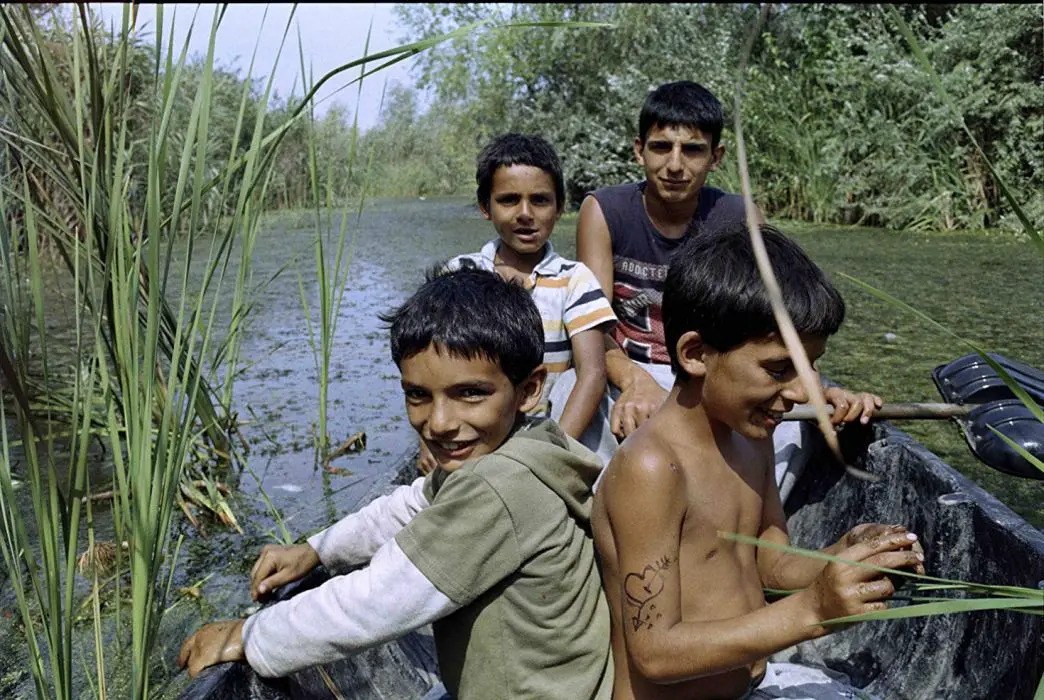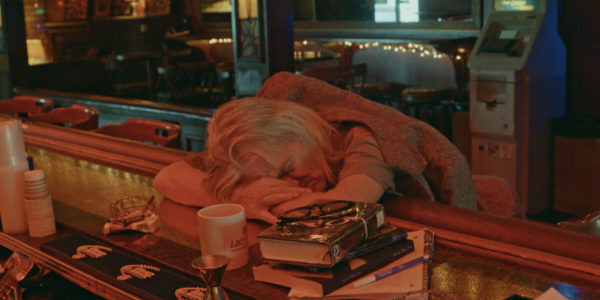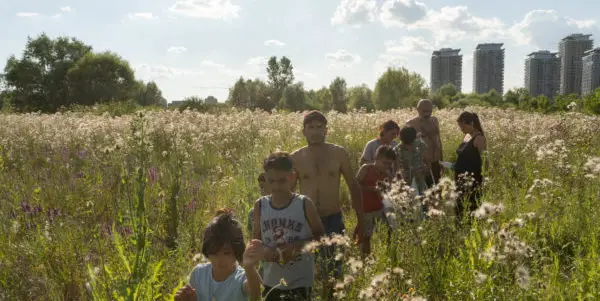Sundance 2020: BLOODY NOSE, EMPTY POCKETS & ACASA, MY HOME

Janet is a writer based in Salt Lake City. A…
The next two documentaries cover the profound meaning behind home. What happens when the only thing you’ve known to be your life and home suddenly gets stripped away?
In Bloody Nose, Empty Pockets, we witness a local bar and community coming to a close; in Acasa, My Home, we see a family moving from the wilderness to civilized society that brings painful realizations and transitions. Both films chronicle change that hauntingly unveil people, experiences, and feelings that are all too familiar.
Bloody Nose, Empty Pockets (Bill & Turner Ross)
Acutely aware of time and space, Bill and Turner Ross craft an environment intimately rooted in the human condition. Having directed the 2009 SXSW Grand Jury Prize winner, 45365, their work clearly shows that they have a gift for illuminating the most overlooked communities.
The Ross brothers find humanity and honesty in the crevices of communities that bring unique, admirable, and memorable stories. Though it premiered in the U.S. Documentary category at Sundance, Bloody Nose, Empty Pockets is not really a documentary. It certainly moves and feels like one, yet it’s a story that takes place in Las Vegas but really shot in New Orleans. Not to mention, all the people in the film were selected prior and given a narrative arc.

This docufiction follows the last day and night of the Roaring 20s bar in Las Vegas. It’s not simply the end of a business, but a community that has sustained friendships and served as a home for many drifters.
Though it follows a group of people within a day, time seems to stand still at the Roaring 20s bar. The Ross brothers’ knack for being fly-on-the wall observers and capturing authenticity brings poignant and amusing moments to life on the screen. There’s a wonderfully raw energy that wafts through each scene. It’s magnetic, and we don’t want to peel our eyes away in fear that we’ll miss a small yet pivotal moment.
The way they choose which subjects to focus their cameras on during specific moments is an art form in itself. They pan in on someone pondering while sipping their drink as commotion, noise, and conversations envelope them. It’s an alarmingly honest and human story that revolves around people who display the best and worst of themselves over alcohol and conversations on politics, love, and generational divides. There aren’t many direct thoughts or words expressed, but we can see and feel the sadness and even fear deepen as the night gets older and their time with their beloved community and home comes to an end.
Especially in local actor Mike (Michael Martin), there’s a profound sense of loss he evokes. From the opening of the film where he’s cleaning himself up to the silent and inquisitive moments that he immerses himself in, lost in his thoughts, and to the way he bitterly exits the bar in a grumble the morning after the final party/farewell, Mike truly embodies the human spirit. His feelings and movements are all too real and relatable.
Their cast is a delight bunch who make us smile, laugh, cry, and reflect upon what we think of as home and how we might react when it’s suddenly stripped away. They are a testament to the Ross brothers’ astute talent in not only crafting vulnerable cinema that beautifully captures people’s imperfections, but also seamlessly blending genres together that takes us out into a discrete time and space.
Acasa, My Home (Radu Ciorniciuc)
With stunning and symbolic visuals that romantically convey the meaning of home, Acasa, My Home follows the arduous journey of the Enache family–nine kids and their parents. When we first meet them, they are living alongside the Bucharest Delta, an abandoned water reservoir and one of the biggest urban natural reservations in the world. Their father, Gică, was once a former chemistry lab assistant who decided to leave “wicked civilization” and opt for a life in the wilderness.
They live in handmade shack, and the kids frolick around the lake among the presence of various species of animals and rare plants. Though their lives may seem imperfect and impoverished on the outside, they live a humble and carefree life full of harmony. The eldest son, Vali, fishes in the lake to feed his family, and the kids playfully swim in the soft afternoon light. Life is pretty good for the Enache family.

Cinematographers Mircea Topoleanu and Radu Ciorniciuc (also director of this documentary) capture stunning landscapes of their home and the Bucharest Delta. There are profound shots of the children walking through the pristine marshes and awe-worthy night shots of Vali fishing at the lake.
More importantly, these scenes carry a striking image of how the city encroaches on the family. Though they live in a rare natural reservation, the Enaches are very close to the Bucharest, Romania’s capital. There’s an aerial shot in the beginning of the film that shockingly brings to light how close the family is to civilization. They live a life so invested and committed to the wilderness, yet they are so close to society.
There’s something incredibly poignant about these scenes; the way the tall buildings constantly loom over their lives. These images speak to the rising inevitability of change and gentrification that permeates through many communities today.
Upon receiving frequent visits from local government authorities who plan to turn the Bucharest Delta into an urban park, the family is soon evicted and forced to live in the city. It’s not an easy move. As they try to transition their life into the city, they change and family tensions rise.
There’s a particular scene where Vali and Gică are arguing in their new home. Being in society has shown Vali what their family lacks and how his father has not given to his children what they need to prepare for their life ahead. As they bicker at each other, Vali is scrolling through a smartphone. This scene encompasses so much of what we see today–generations drifting apart and technology shifting the way we communicate.
Ciorniciuc, an investigative journalist, does a fine job crafting a compelling and personal story with an investigative eye. He captures intimate moments, illustrating the great access he was granted into the family’s life.
As we’re often inundated with technology in our rapidly evolving digital age, there’s a certain sense of nostalgia that permeates through the screen. The Enache family illustrate a stillness and freedom that we rarely see today. “This city isn’t good for us at all,” Rica, the second-eldest son laments towards the end of the film. It begs the question–what makes a good life? What do we do when what we need isn’t offered by the society we live in?
Bloody Nose, Empty Pockets and Acasa, My Home screened during Sundance Film Festival 2020.
Does content like this matter to you?
Become a Member and support film journalism. Unlock access to all of Film Inquiry`s great articles. Join a community of like-minded readers who are passionate about cinema - get access to our private members Network, give back to independent filmmakers, and more.
Janet is a writer based in Salt Lake City. A strong advocate for underrepresented voices, she believes cinema is a transformative medium that challenges assumptions and creates diverse conversations.













